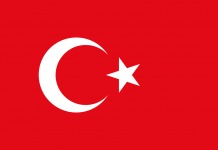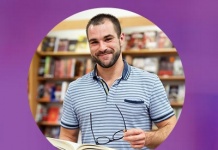 The Bookseller has a feature interview with James Daunt, the new managing director of UK bookstore Waterstone’s. Daunt talks about his impressions of the future of the book and e-book, and why publishers are still important in the modern publishing landscape.
The Bookseller has a feature interview with James Daunt, the new managing director of UK bookstore Waterstone’s. Daunt talks about his impressions of the future of the book and e-book, and why publishers are still important in the modern publishing landscape.
Daunt thinks that we will continue to read books in multiple ways, on a number of different platforms including paper. Paper will not disappear, but we will read a lot more digitally than we have been. And with so many other distractions available on tablet devices at the swipe of a finger, books will face a challenge competing with more interactive forms of entertainment.
Waterstone’s is in the process of launching its own e-reader, and Daunt discusses Waterstone’s plans to integrate the e-reader with the bookstore experience. 87% of the population of the UK is within a 30-minute drive of a Waterstone’s store, Daunt explains, and people visit bookstores not just to buy physical books but because they like to go there.
Bookshops are part of the cultural fabric of this country. Bookselling is something you just get better and better at. From a customer’s point of view, having someone who has sensibly and intelligently curated a book for him or her is hugely beneficial.
If only we could lock the experienced bookseller into the e-reader.
That happens if you choose your digital reader in a bookstore environment. I have a digital reader and I also like to own a real copy of the book. I don’t think it’s one or the other. I do think, however, that selecting a book in a book environment is still one of the most pleasurable places to do it.
Daunt thinks publishers are still important for their expertise in guiding new authors to create great books and establish themselves on bookstore shelves. He does see Amazon as a game changer to watch, and admits that it is possible the company might end up “swallowing up the publishing industry,” but still thinks that traditional publishers will continue to exist. He closes by pointing out (without irony) that traditional books make great Christmas gifts to pass on to future generations.
I wonder whether Waterstone’s e-reader plans will be successful? Barnes & Noble doesn’t seem to have done so well at integrating its bookstore experience with its e-readers; if it had, I would think it would have done better at competing with Amazon.
But I wonder just how much like Waterstone’s culture Barnes & Noble really is. It may be a misapprehension on my part, but I’ve never really felt like mass-market bookstores were staffed with the sort of knowledgeable booksellers Daunt discusses—they’re just mass-produced big boxes filled with bookshelves and people to run cash registers. The stores are too big and busy for staff to give customers that sort of individualized attention—there’s just no time. Perhaps that’s part of why Borders fizzled; it didn’t build rapport with customers—it just took their money and gave them their books.
But I guess that’s probably a bit unfair of me, drawing conclusions based on my own experiences alone. There may well be lots of experienced people at these stores who know books and are able to spend a lot of time with customers. I just don’t recall ever having met any of them.
Daunt’s interview suggests the Waterstone’s stores feature booksellers who do take the time to know their customers and “curate” books for them. (I have to take his word for it—it’s not as if I can just pop into one and check.) If that is the case, and they can combine that with the e-reader experience, they might just have something there.
































Yes they do. Visiting Waterstones can be hugely pleasurable experience, especially during ‘off-peak’ times (which, sadly, precludes most w/ends for most stores). Once they were associated with coffee shops, so you could really relax, but not so often these days. So, the ‘right’ Waterstones at the ‘right’ time is a joy. At least one author has included an acknowlegement to the staff of his local Waterstones (ask for ‘Rivers of London’), which I imagine is somewhere near Covent Garden. My thanks go to the staff in High Wycombe for pointing me to it.
But your local Waterstones can be a bit B&N too. Which is a bit like finding a Starbucks when you were hoping to find somewhere that sells something that tastes like real coffee. Not a bad experience, just not a great one.
The overt content of a book results in diversified and variegated meanings as interpreted by different readers. That common observation can obscure an underlying mechanism of diversified meanings. Each reader also presents a different perspective lent by a unique composite of books previously read. Add to this disposition a unique expectation applied to any unread book.
This accentuated display disparity, similar perhaps to the naturalist’s bionic diversity, sets the stage for niche and enclave refuge. Among readers such refuge is found among genre addiction, book club synchronization, and device favoring. Even odd reader behavior could be interpreted using this ecologic approach. Rarified letterpress book fans or, more commonly, specific author readerships take on a protective stance in the wider world.
@ Gary Frost: I consider myself reasonably intelligent, but I haven’t the first idea what you’re saying.
Becca, I was responding to the retailer curation of reading tastes as with the Amazon selections based on previous purchases.
I think it’s odd that you still consider the nook a failure against the Kindle.
Amazon, as a company, was 5-50 times larger than Barnes and Noble to begin with (depending on how you measure), had 70% market share of online book purchases, had a built-in advantage due to “no sales tax”, 10x as much cash on hand and probably 100 times as much media coverage.
And on top of that, Amazon had a 2 year head start and weren’t dodging bankruptcy rumors the entire time.
Based on all of that, you would think people would be impressed if the nook had 10, maybe 15% market share after only TWO years.
For the nook to actually have 20-30% (more than Apple, Sony and Google combined) market share in the ebook market is extraordinary.
Surely you have to admit they’ve done something right 😉